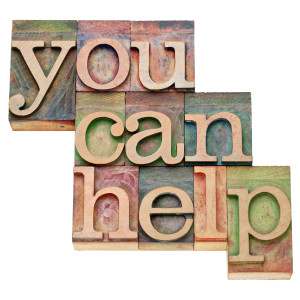AARP Hearing Center

When visiting elderly or disabled family members for the holidays, you and/or your siblings may notice that parents are a little less spry—or a disabled loved one may need some extra help. Here are seven easy things you can do to help shore up safety whether you are visiting their home or having them come to yours.
When visiting elderly or disabled family members for the holidays, you and/or your siblings may notice that parents are a little less spry—or a disabled loved one may need some extra help. Here are seven easy things learned from serving as a caregiver for nearly thirty years ...that you can do to help shore up safety whether you are visiting their home or having them come to yours.
1. Check the lights. If someone is a bit older, chances are their eyesight is declining—as well as their mobility. Ensuring ample and working fixtures, along with correct wattage for bulbs, goes a long ways towards keeping loved ones safe. Be sure to check entryways, utility areas, and closets, as well.
2. Check all the smoke detectors. Batteries are cheap—lives are not. While changing the batteries, use that time to discuss emergency exit plans. If your loved one uses a cane, walker, or wheelchair, ( or has vision issues)—how easy is it for them to get out of the house in an emergency?
3. Inspect and tighten all railings and grab bars. Just because it has been in place for a while doesn’t mean a railing or grab bar is secure. Armed only with a screwdriver, you can take twenty minutes to help vulnerable loved ones avoid some nasty falls. While you're at it, look for a pedestal sink in their bathroom. Those type of sinks are often used to lean on, but may not be securely bolted into the wall. All it takes is leaning on it the wrong way, and it could lead to a nasty fall—and a plumbing mess.
4. Inspect area rugs—they can be a real problem for walkers, canes, wheelchairs, and other mobility impairments. They may be beautiful, but are they a fall hazard for your loved one?
5. Check the alarm system. Is it antiquated? Are there features than can be updated? Is there a panic button? Make technology your friend and consider some advances with Bluetooth speakers connected to a pendant. Rushing to get the phone can be hazardous, if they can simply press a button and answer the phone on speaker from anywhere in their room (or house), it keeps them safe and connected.
6. Heating/Cooling/Plumbing. Consider a club membership in a company that services these appliances. If Mom is taking care of Dad …who is taking care of the water heater? A club membership offers annual inspections of units, flushing of water heaters, and trained professionals looking at duct work, plumbing, and wiring.
7. Check out the laundry area and ensure it is safe. If stairs are involved in taking baskets of clothing to and from the laundry room, extra safety measures may need to be taken.
All of these things take only a small amount of time and little or no money, but can prevent serious and costly injuries or mishaps. No one likes to think that guests are coming to their home to inspect them, but with a loved one, it is a way of showing you care—and that their safety and well being is important. Holiday family gatherings are much more enjoyable when they are not spent in the emergency room, so take a few extra minutes to help that loved one stay safe.
Peter W. Rosenberger draws upon his vast experience in caring for his wife for 27+ years through her now 78 operations, multiple amputations, 60+ Doctors, 12 Hospitals, and $9 million in medical costs. In addition to authoring two books and numerous articles, he hosts a weekly radio show for caregivers. Peter and Jeff Foxworthy recently teamed up to do a hilarious video for AARP "You Might Be A Caregiver If …" Peter’s newest book is Wear Comfortable Shoes-Surviving and Thriving As A Caregiver. For more information visit http://www.caregiverswithhope.com.

Peter Rosenberger hosts a weekly caregiver-focused radio show on WLAC in Nashville.
Tune in at 9 am central on iheartradio every Sunday.































































